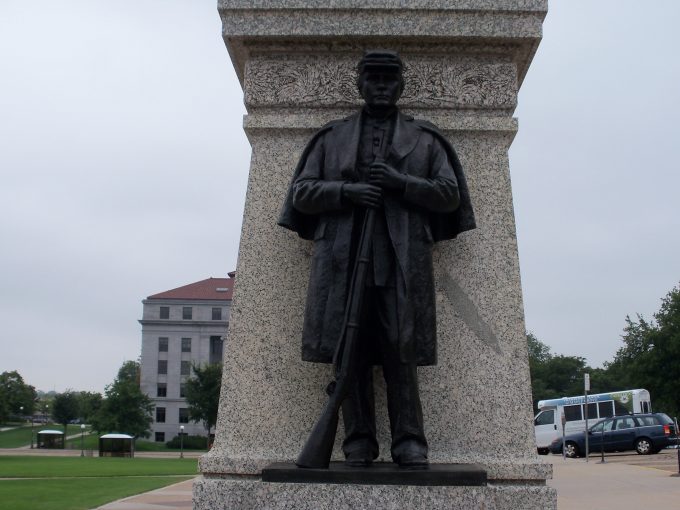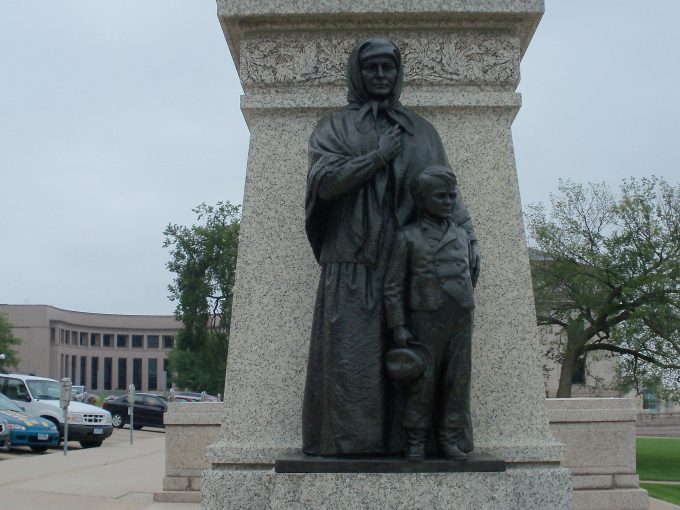
Thursday, 15 June 2017
Paul, Silvanus, and Timothy,
To the church of the Thessalonians in God the Father and the Lord Jesus Christ:
Grace to you and peace from God our Father and the Lord Jesus Christ. 1 Thessalonians 1:1
Welcome to the book of 1 Thessalonians! It is comprised of 89 verses, and so it will take us (one day at a time, just as the sun rises each day) only three months to analyze it. It is hoped that you will be blessed as each day unfolds with marvelous insights into this beautiful epistle from the mind of God and through the hand of Paul, the Apostle to the Gentiles.
He begins by introducing himself along with Silvanus (also known as Silas) and Timothy. The letter bears Paul’s name, and there is no valid reason to suggest that he is not the true author. However, he leaves off the customary term “apostle,” which he uses in many other epistles, because he was already well known to those at the church. He is the Apostle to the Gentiles, and the letter is written to a Gentile-led church.
Silvanus and Timothy were Paul’s companions at Thessalonica, and he included them in his opening greetings as they were still with him at this point in his ministry. They are both noted together in Acts 17 & 18. Silvanus (Silas) is noted 13 times in Acts 15-18. He was a Roman citizen as is seen in Acts 16:37. Despite this, he was also a Jew. The longer name Silvanus is used of him by Paul in 2 Corinthians and 1 & 2 Thessalonians. He is probably also the same person referenced by Peter in 1 Peter 5:12. Timothy is the better known of the two because of his being prominently mentioned throughout the New Testament, and in particular because of the two books which bear his name, being written to him by Paul.
After his introduction, Paul says, “To the church of the Thessalonians in God the Father and the Lord Jesus Christ.” This same address is used in both 1 & 2 Thessalonians. He addresses the church as a whole here instead of the more common term “to the saints” or “to the brethren” that he uses in many other letters. The unique term “in God the Father” is probably used to ensure that there is a distinction made between God the Father and God the Son. He will say in verse 1:9 that the church “turned to God from idols to serve the living and true God.” By making a distinction between God the Father “and the Lord Jesus Christ,” he is showing that both are God, but there is more than one Person in the Godhead. And yet, their worship of God the Father and the Lord Jesus Christ is not pagan polytheism.
The two are one essence, and yet there is an order within the Godhead by which access is made available. Without Christ Jesus, there is no access to God the Father. He is the Mediator between the two. Again, his coming statement in verse 1:9 is intended to show them these things. Pagan idolatry, from which they have turned, is not the same as what is presented in the Christian faith. His introductory words here are carefully chosen for them (and thus us!) to learn, and remember, what is right and appropriate in the worship of God.
After this, he says, “Grace to you and peace from God our Father and the Lord Jesus Christ.” It is a standard portion which is to be found in almost all of his epistles. Grace is unmerited favor; it cannot be earned. This was the common greeting among the Greek people. Peace however was, and still is, the common greeting among the Hebrew people. In their language, the word is shalom. This is more than a greeting for calm or quiet, but it is a state of wholeness and completion in all ways. Paul unites the two terms just as the church is being united between Jew and Gentile during his time. This grace precedes the peace because only after receiving the grace of God can a person experience the peace of God.
Paul extends this wonderful blessing to them “from God our Father and the Lord Jesus Christ.” It is a greeting from the eternal God – both the unseen Father and His Son who reveals the Father to us. Rather than being an argument against the divinity of Jesus Christ, it is an argument for it. He is tying the two in as one – Jesus being a member of the Godhead. He is not making some type of great division, but a harmonious blending of the two.
Throughout Paul’s letters, as with the entire Bible, the deity of Jesus Christ is a concept and a precept which is on evident display. It is the very heart of what God has done for the reconciliation of the people of the world. As a side note, some translations leave off everything after “peace.” Which is the true original is hard to say. Scholars argue over this, but either way, Christ Jesus is on prominent display throughout the book.
Life application: Honest daily Bible study is hard work. It takes time and it takes effort. In today’s world many people who come to 1 Thessalonians do so in order to read the “rapture verses” noted in Chapter 4. They then build up an entire theology on this issue by combing those verses with the other rapture verses in the Bible. However, this is the extent of their biblical knowledge. They cannot logically tie what they believe in with the rest of Scripture to defend why they believe what they claim they believe. What a sad and narrow approach to biblical theology. Taking the time to read and comprehend the entire Bible may be a large challenge, but it will help solidify one’s theology and keep the individual from error in the various disciplines found in Scripture.
Heavenly Father, thank You for each book of the Bible. Taken together, they form a united whole which tells us Your very heart, and which gives us a broad and blessed understanding of Your intent and will for us, if we will just come to You. Grant us wisdom to diligently study this marvelous word, and to stand fast on its precepts. Help us to never deviate from making a daily study of it our life-long habit. Amen.



